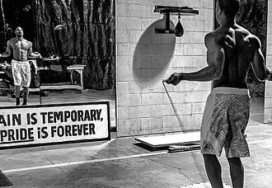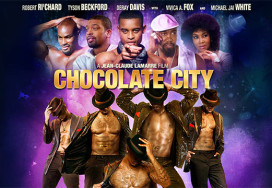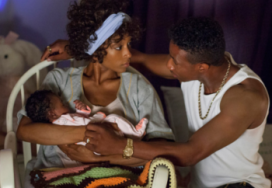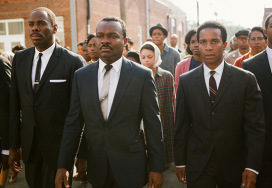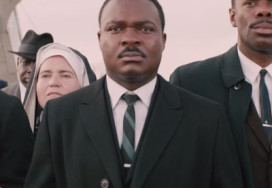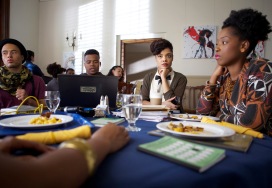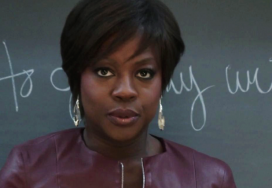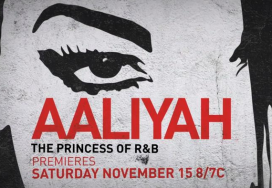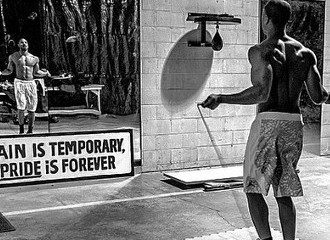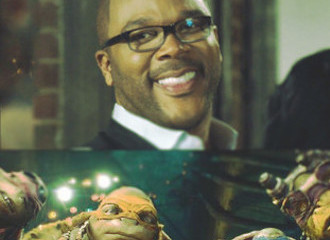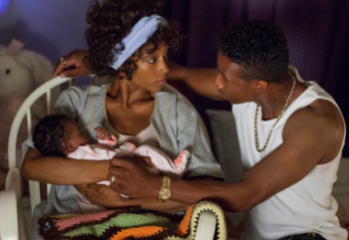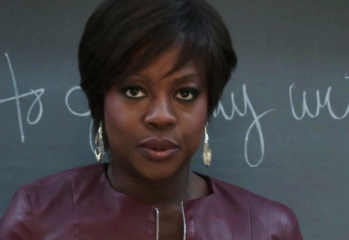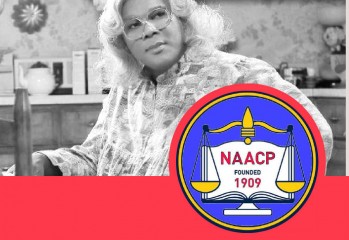Blallywood Film Review: Steel Magnolias (Perspective 2)
“There’s nothing new under the sun,” the familiar phrase of cynics across the world who have lost faith in creative ingenuity. It seems, however, that the black community has embraced this sentiment by setting a recent trend of remaking all-white classics into all-black updates. Tennessee Williams’ classic plays Cat on a Hot Tin Roof and A Streetcar Named Desire were re-envisioned on Broadway in recent years with major celebrities like Terrance Howard and Anika Noni Rose and Blair Underwood and Nicole Ari Parker respectively. On Sunday night, it was Lifetime’s turn. The much-anticipated all-black remake of Steel Magnolias aired, the iconic 1989 tearjerker starring then up and coming movie superstar Julia Roberts and the prolific Sally Field.
The setting is a quaint southern town and the film opens on Shelby’s wedding day, the young, beautiful, and well-off daughter of M’Lynn and Drum. It’s obviously the wedding of the decade with Shelby’s parents sparing no expense to make sure the day is pitch-perfect. A few hours before the wedding, M’Lynn (Queen Latifah) and Shelby (Condola Rashad) stop by Truvy’s Beauty Spot to get spruced up for the event. There we meet Truvy (Jill Scott); Clairee, former Mayor’s wife (Phylicia Rashad); Annelle, a new-hire at Truvy’s on a very personal journey after her husband disappeared (Adepero Oduye of Pariah fame), and finally Ouiser, wealthy embittered business woman (Alfre Woodard). After an episode in the beauty salon, we learn that Shelby is incredibly sick with Diabetes and Chronic Kidney Disease and that her doctor has advised her against ever having children. The movie moves fairly seamlessly moment to moment with a sweet wedding scene and reception scene in which family and friends dance to The Wobble, what feels like a forced attempt to suggest a contemporary setting. Shelby and her new lawyer husband Jackson (Tory Kittles) speed away happily married to start a life in a neighboring city. Many months later at Christmas, Shelby and Jackson have returned home to visit. Shelby reveals she is two months pregnant and has decided she wants to have a baby of her own after having trouble adopting because of her medical condition. You can probably guess the rest of the movie at this point. After Shelby gives birth, her kidneys deteriorate and even after having a kidney transplant, she dies on the kitchen floor with her baby son helplessly looking on. It’s the heartbreaking drama of which classic movies are made.
The story alone is beautifully imagined and simple. The focus is this tremendous mother-daughter relationship believably played by Queen and Condola. Shelby and M’Lynn’s love is deep and almost poetic. Poetic to the point that M’Lynn gives a stunning speech at the end of the film about how “fortunate” she was to have been present when her daughter entered the world and when she left the world and how she felt an ironic sense of peace after Jackson decided to take Shelby off life support. I thought many areas of the film were really great- namely all of the scenes in Truvy’s Beauty Spot. Watching these great actresses communicate and enjoy each other was heartwarming and authentic. However, many areas of the film felt forced and a bit unsupported, the dialects being one area and the syrupy-sweet mother-daughter scenes lacked certain urgency and edge, each scene ending in the inevitable “Lifetime” hug. The film also at times felt a bit dumbed down for the television audience often resulting in over explaining a plot element without giving the audience the opportunity to infer or use their imagination. I thought Alfre Woodard was especially thrilling as Ouiser. Her performance was the most dimensional. It was exciting to watch her experience with her friends and losing the young vibrant Shelby transform her entire demeanor from embittered and angry to soft and enlightened. Another standout was Condola Rashad. Her take on Shelby was energetic, deep, and full of light. Shelby almost seemed invincible such that her death has resounding meaning for the lives of the other women, especially her grieving mother.
I have to admit that when I first caught wind of this bold undertaking, spearheaded by celebrity director Kenny Leon, I cringed a little. Black folks standing in the shadows of the iconic work of white counterparts makes me feel that we’re shortchanging ourselves. While a wonderful idea, I can’t imagine what it accomplished. Aside from bringing in a whopping 6.5 million views for Lifetime, how did this piece progress or push the envelope for black artistry? Black sisterhood has ALWAYS sold- we saw it with high-grossing films like Waiting to Exhale and For Colored Girls. I would have liked to see an original screenplay getting this type of attention. There are so many talented black women writers like Lynn Nottage, Suzan Lori-Parks, or Lydia R. Diamond and Katori Hall. We should be creating original work that challenges our loyal audience and the mainstream audience to courageous heights of imagination and possibility. This remake, though it revealed an interesting new way of understanding the many facets of the black experience, at its core, is just another remake. Congratulations ladies, on a job already done. C+.
Have You Read These Yet?
-
Beekyg


